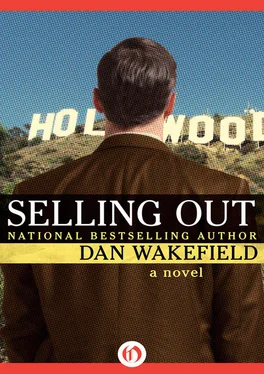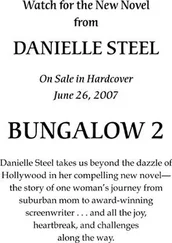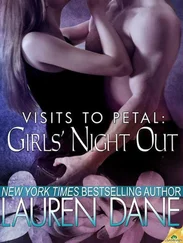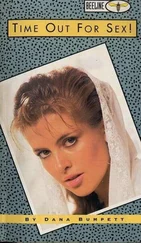Perry felt his attention slightly sag.
“They’re doing what sounds like a wonderful series for teenagers,” Jane enthused, “and best of all—oh Perry, this is so amazing I can hardly believe it—Mona went to college at Middlebury! And she loves Vermont! ”
“It’s not only my favorite state of the union, it’s my favorite state of mind,” the motherly Mona said sweetly.
“Mmmm,” Perry said with a nod of acknowledgment.
So that was it. Pru Vardeman had played the good hostess by getting Jane together with the one person in the whole glittery crowd who got her rocks off reminiscing about Vermont , for God sake. Well, he guessed it was harmless; better than introducing his wife to one of those well-tanned seduction artists among the sucessful-actor set.
“I loved ‘The First Year’s the Hardest,’” Mona said. “It’s the sort of thing that makes all of us proud.”
“Thanks,” Perry said, beginning to look around the lawn, trying to spot more stars.
“Maybe you and Mona could even work together some day,” Jane said. “She’s read your stories!”
“I’m sure you have many fans out here, Perry,” Mona said, “but I hope you’ll remember me as a genuine one of them.”
“Sure. It was nice to meet you,” he said, and pulled Jane away to the bar.
“You could at least have been polite,” Jane whispered at him harshly. “She’s a wonderful person.”
“I’ll vote for her,” Perry said, “for the Mother of the Year Look-Alike.”
He had bigger fish to fry than Mona Halsted.
Perry was on a roll.
When the final compilation of national Nielsen ratings came in, “The First Year’s the Hardest” not only won the night it was aired, it was number one for the whole week, barely—but still, amazingly—beating out the highly touted “Frills,” a lascivious four-part miniseries about an orphaned transvestite who overcomes a crippling bone disease and ruthlessly rises to the top of a worldwide lingerie empire. Analysis showed that “Frills” was up against stiff competition, going head-to-head against “Dallas” one night and “Love Boat” the next, while “First Year” had only the hapless magic show special and the bottom-drawer baseball game to contend against, but still, number one was number one, no matter how you sliced it, and the creators of the new hit were enjoying their growing prestige and power in the Industry.
“We’re number one for the whole damn week,” Perry intoned with slow emphasis when he called Jane the morning of the latest momentous news.
“Perry? Is that you?” his wife asked.
“Who else, love? Is Archer himself calling to tell you the ratings news?”
“No. It was just—you sounded kind of like Orson Welles.”
Perry roared. Like a lion.
Evidently his voice was getting even deeper. If his success continued at this accelerated pace, he would soon sound like James Earl Jones doing Darth Vader.
And why not? It seemed his work meant death to the opposition. In a few seasons, rival networks would tremble on hearing that a new Perry Moss show was going on the air.
“Do you feel like a traitor to the world you came from?”
Perry felt himself start to flush, then laughed expansively.
“You make it sound like I’m a visitor from another planet. Some kind of Isaac Asimov character.”
The reporter, who was working on his second Dos Equis, and had hardly touched his enchiladas, was obviously trying to bait him. Perry took a delicate sip of his Virgin Margarita, feeling cool and in control. The reporter was obviously hostile, probably jealous, which made it all the more essential for Perry to stay calm, aloof. He didn’t want to look a fool in the Entertainment section of the Los Angeles Times .
“Aren’t the values of the academic world some light years away from those of network television?” the reporter pressed.
Perry dabbed a napkin at the salt around the corner of his mouth and settled back in his banquette.
“I can only go by my own experience,” he said. “I’m lucky to be working with topflight people like Ned Gurney, Kenton Spires. And of course Archer Mellis, of Paragon, whose sole purpose in bringing us together was to try to do quality television. His faith has sustained us, and the network has loyally supported us.”
“So you’re giving up teaching for television?”
“Oh no! I’m going back to Vermont for the fall semester. We’ll have finished our current order of shows by then, and if we get picked up, I’ll of course be in constant touch on a consultancy basis. If not, I’ll still come back here during our holidays and our midsemester break in January. There’s lots of other offers I’ve had, and lots of ideas of my own I’d like to develop. But I’ll alternate that with teaching.”
“Don’t you think trying to do both will make you schizophrenic?”
Perry smiled.
“I hope it will only make me like what so many people are becoming who commute from East to West—bi-coastal.”
The reporter flipped his notebook shut, and finished off his beer.
“I can’t wait to talk to you a year from now,” he said.
“It’s a date,” Perry said with a smile. “In the meantime, I really have to run back to the lot.”
At the very end of the interview-lunch at Casa Tio, a fancy Mexican restaurant, Perry had begun to experience uncomfortable feelings of shortness of breath and a beginning of trembling in his fingers. The anxiety was like he used to feel before his life with Jane when he was always hung over and trying to go a few days without a drink, but this time it was not because of any such envy brought on by the reporter’s swilling of the Mexican beers, while he sipped his pure citrus Margarita without the tequila. That in fact gave him a sense of calm, and control, of superiority. Nor was it the reporter’s aggressive questions, for though they were annoying they weren’t really upsetting. The fact was, Perry now found he simply didn’t want to be away from the lot. He suffered what felt like withdrawal pains whenever he had to leave it during the working day.
The damn lunch made him miss dailies. The only comfort was that it meant publicity for the show.
“How was your interview?” Ned asked him.
“The usual. A bore. The guy was all right, I guess. He just didn’t understand—I mean, I knew I couldn’t really explain to him what it’s like, what we’re doing, why I love it.”
“Of course not,” Ned said. “You never can, to civilians. Reporters are civilians.”
Yes .
Perry understood that now. He had heard guys on the lot speak of anyone outside the business as “civilians” and it was true. They might be smart, and sympathetic, and curious, but they didn’t understand the world you were working in, any more than people at home understood about the life of soldiers in combat. It was simply a different experience, a different life—more intense, exciting, adventurous, meaningful.
Perry was not a civilian any more, he was part of the army of entertainment, part of the elite troops. Maybe that was why so many of them wore shirts with epaulets on them, and semi-military jackets. They were an army, fighting the never-ending battle against boredom, against emptiness, against the threat of blank television screens or movie screens or stages all across America and the world. They were on a mission to make pictures, stories, images, symbols, to fill the gap, the maw, the waiting wandering attentions and hungry minds of a whole society.
He realized that was why he didn’t want his best friend—or best friend from his other world—Al Cohen, to come and visit Not because Perry was a snob and didn’t care for Al any more, not that he thought less of him, but the fact was, Al was a civilian. When you were fighting on the front lines, for the life of your cause (the show), you simply didn’t want to be distracted by having civilians around, no matter how bright they were, no matter how you might care for them. He wrote to Al as graciously as he could, explaining it just wasn’t a good time for him to come out, there wouldn’t be any chance to talk or show him around the way he’d like to do, but anyway, he and Jane would be back in Vermont in just a few weeks, he’d explain everything then.
Читать дальше












